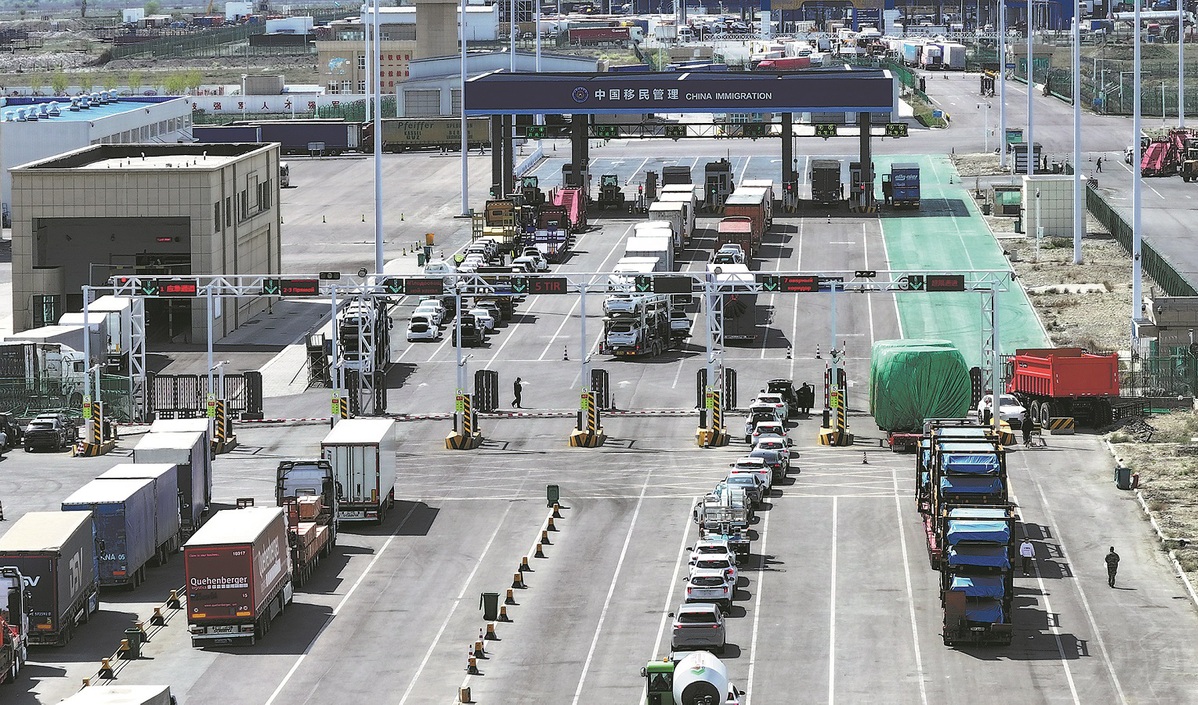Trade thrives at Horgos land port
Logistics crossing in Xinjiang gives quality Chinese goods convenient routes into overseas markets


Guo Zhigui, manager of Tongjianggongchuang International Trade Company, said the company decided to set up a cross-border e-commerce platform in Horgos selling daily necessities at the end of last year because efforts to make the border city a hub for reform and opening-up have paid off.
"Horgos, which has a natural geographic advantage for opening-up, has been transformed since the BRI was introduced. With the boost in connectivity, trade facilitation and policy support, it has become an ideal place to set up businesses targeting Central Asian markets," Guo said at the company's office at the China-Kazakhstan Horgos International Border Cooperation Center.
Covering 5.6 square kilometers, with 3.43 sq km in the Chinese section and 2.17 sq km in the Kazakh section, the border cooperation center has been in operation since April 2012. It's the first cross-border cooperation zone established between China and another country.
Citizens of China, Kazakhstan and other countries can enter the center using valid documents such as passports or entry-exit permits, allowing them to engage in face-to-face negotiations, transactions, shopping and tourism without visas.
"Although people from Central Asian countries can directly place orders on our e-commerce platform, many people still prefer to see the products first. So we've set up a showroom at the border cooperation center that they can easily access. Old and new ways of doing business are both very convenient in Horgos, which is very inclusive," Guo said.
He added that the recent trade frictions between China and the United States have made people see the importance of having a smooth trade channel with Central Asian countries.
"While people are worried about the consequences of the frictions, it's business as usual here in Horgos. After laying solid foundations to facilitate trade with more countries involved in the BRI, businesses can easily seek opportunities and explore new markets elsewhere," Guo said.
In the first quarter of this year, Xinjiang's foreign trade value totaled 108.16 billion yuan, up 15.4 percent year-on-year. Trade with five Central Asian countries accounted for 52.7 percent of the region's total, according to Urumqi Customs.
The growth, mainly driven by strong export demand and diversification in trade partnerships, shows a promising start to the year amid a complex global trade environment, it said.
























